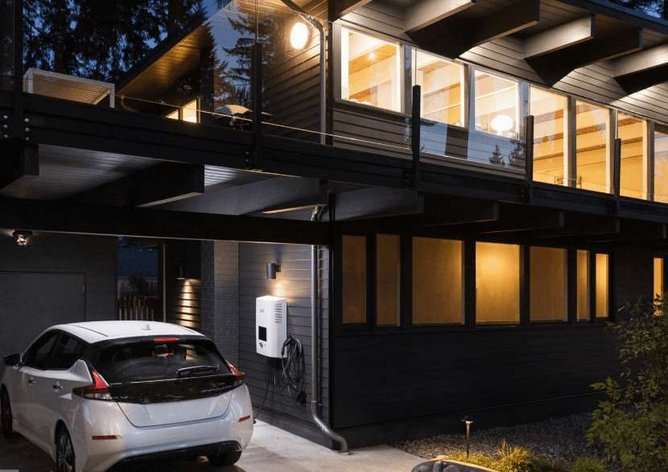5 Mins With ... Laurent Schmitt, European CEO for dcbel

Tell us about dcbel, how the business started and your objectives?
dcbel is a new and extremely exciting prospect for the European energy market, which will help consumers future-proof their homes and the planet. The business was founded in North America and uses technology to help consumer align their energy choices with their values while reducing everyday energy costs.
At its core, the dcbel r16 is a home energy station that allows for a bidirectional charge to be passed from solar photovoltaic (PV) energy to be stored in an electric vehicle (EV), as well as from the EV to power the home (V2H) and sold into the grid (V2G).
Our objectives are simple: help our consumers create a net-zero home and don’t break the bank in doing so! Our product aims to be an affordable - with a five year ROI capability - as well as an ethical choice for those looking to take control of their energy consumption to create a more eco-friendly home.
How does the dcbel technology work and what benefits does it offer consumers?
We believe the technology encapsulated in the dcbel products is groundbreaking, with multiple patents. We’ve designed a lower cost AC:DC converter and integrated across PV, EV charging and home storage applications. Essentially bringing five products into one user-friendly solution, that takes up a quarter of the wall space, for the modern home and environmentally-conscious consumer.
For the consumer, dcbel offers greater control on, not only the consumption of energy in their homes but also how it is produced and stored. This means dcbel consumers will make the best use of their locally produced PV for powering both their homes and their EVs. In addition, they will take the best advantage of electricity tariffs becoming dynamic offering an affordable alternative to rapidly rising average energy prices.

What impact will the recent UK energy crisis have on the future of electric vehicles and solar energy?
The energy crisis is hitting household wallets a lot faster and with greater severity than anyone could have predicted. It has highlighted the volatility of the market and consumers frankly deserve new tools to protect them.
That's why dcbel is offering the consumer greater control by providing them new options to bring their home energy on autopilot. Put into context, we calculate that when the energy cap increases in April, investment in a home energy system will break-even in roughly two to 4 years - that is an overnight reduction in the break-even timescale of between 35%-44%.
Are you optimistic that net-zero targets can be reached?
Following COP26 the discussions surrounding how to achieve net zero have been very positive and the government's action to make EV chargers a standard in new homes by law as of this 2022 is a big step in the right direction.
With that said, more needs to make consumers take full control of their own energy consumptions to minimise charging costs. This means greater education about vehicle to home (V2H) technologies which are proving themselves to be a no regret addition to future net-zero homes. Deployments of PV, V2H and Heat Pump together are sufficient to align every citizen's carbon footprint with future 2050 netzero objectives.






